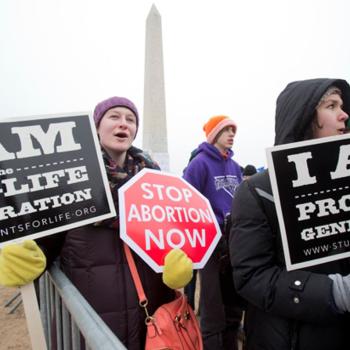 A cascade of silken garments, then St. Francis runs, naked and free, from his father's wealth. Questions dart around Assisi's public square: "Why?" Why would he surrender so easily the economic security that others spend a lifetime working for?
A cascade of silken garments, then St. Francis runs, naked and free, from his father's wealth. Questions dart around Assisi's public square: "Why?" Why would he surrender so easily the economic security that others spend a lifetime working for?
Francis chose poverty; today's economy forces people into it. But can we still derive some good from the downturn? What spiritual wisdom comes like an unexpected blessing from dire financial straits?
Catholics believe that we can bring the lens of faith to bear on every issue, no matter how painful. The challenge today is avoiding pious platitudes that help no one, instead finding insights to support and strengthen people enduring difficult times.
Any authenticity brought to such a tough issue must spring from personal experience. People are skeptical about advice from those whose retirement is secure and whose jobs are unthreatened. We turn from those who cluck smugly that we're simply too materialistic.
Can anyone who has not stood in their shoes fully understand the plight of the young family where mom and dad have both lost jobs? Can anyone who hasn't seen the "foreclosure" sign hung on their own front porch know the depths of that sorrow? Who can share the sadness of retirees who've watched helplessly as hard-earned savings evaporate?
If we speak at all, then, we must speak humbly. To a slight degree, I understand the crisis from personal experience. After seventeen years of excellent job evaluations, a new owner acquired the publisher where I worked as an editor. Seniority and skill meant nothing—several of us were fired. Severance didn't begin to compensate for no salary, no benefits, no IRA. The little set aside for retirement was quickly wiped out. And my situation is not nearly as dire as many people face. We all know friends burning through their savings and parents wondering how to feed the kids.
Beyond the financial insecurity, jobs define us: our social groups, our contributions to society, our outlets for creativity. When these vanish, we face the demons of anger and depression. We may stoutly maintain that we don't base our identity on the job, but try taking it away. Many people contend hopelessly with humiliation and worthlessness.
The role of faith, then, is to address a gaping vacuum in peoples' lives. Few who are experiencing the crisis want to be patted on the head or told "this too will pass." They want desperately to believe in President Obama's assurances that jobs will be restored. The unemployed want to take literally his confident invitation, "let's get to work."
But we live now in the transition, with the worst of the crunch hitting hard and the remedies not yet begun. Where do we look for help?
At this critical time, the church—and we as individuals—must rise to roles we haven't filled since the Great Depression. The crisis calls forth our finest selves. As Jim Wallis of Sojourners says, we must ask ourselves not "when will it end?" but "how will it change us?" Here are a few directions we might take.
The Glue
At the most basic, physical level, the Christian community has already stepped forth to offer concrete aid in countless shelters, food banks, and hospitals. Church-sponsored sports, films, concerts, and potlucks may be the only entertainment some can afford now. For seekers who want to mine the crisis more deeply, it's an opportune time for counseling, days of prayer, and retreats. The parish can also serve as a unique clearinghouse, bringing together members who need workers with those who need work. Because of their universality, Catholics have always resonated with the diversity of others around the world. Now, we experience a more direct solidarity: we know first-hand how others agonize over money.
Individuals reach out to each other with humor and hope. An email, a card, a shared sandwich can remind the jobless: you have a richer identity than the label "unemployed." We've always known that what we are matters far more than what we have. Now we're experiencing the acid test of that idea. Will we look back on this as a time when we grew more reflective, more concerned for others in worse situations, more appreciative of what we have and less bitter about what we lack?
The Restorer of Hope
What may help as much as physical care is reminding people of their deepest spiritual identity: beloved of God, regardless of what's in the bank account. The crisis presents us with the opportunity to turn from anxiety and trust that God who has been gracious before will be again.





